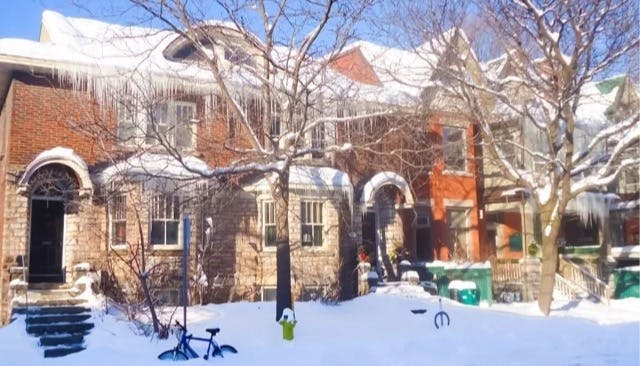What happens at a house showing? When listing a home for sale, this question was commonly eclipsed by others that more directly impacted the seller’s bottom line, such as, “How much should I list for?” and “How long will it take to sell?” However, COVID-19 shifted the showing process, with extra attention paid to safety, convenience and new best practices (think technology). Now, with COVID-19 restrictions starting to ease across the country, here’s a quick refresher of what home sellers can expect when showing their home.
Continue reading →Blog

Canadian Real Estate Markets With the Steepest Price Growth
Although the red-hot Canadian real estate market has ostensibly taken a breather in recent months, the latest trends developing across Canada suggest that the boom still has room for growth this year. From strengthening demand to lacklustre new housing construction, many factors are pointing to an upward trajectory for Canadian real estate markets over the next 12 months.
Housing affordability had been a considerable issue since before the coronavirus pandemic, but it was largely concentrated in major urban centres such as Toronto, Vancouver and Montreal. In the aftermath of the first wave of the COVID-19 public health crisis, Canadian real estate valuations went through the roof from coast to coast.
Continue reading →
What Is a Reverse Mortgage?
Typically, when tapping into your home’s equity, one uses a home equity line of credit (HELOC) or refinances their mortgage. What if we told you this was not the only way to free up home equity for other purposes? While a traditional mortgage is a loan secured by a home or property, the borrower must pay back the loan each month with interest throughout the loan lifetime. A reverse mortgage is the opposite. So, what is a reverse mortgage anyway?
A reverse mortgage is exclusive to Canadians over the age of 55. In a reverse mortgage situation, the homeowner can borrow as much as 55 per cent of the current home’s value. In other words, they are borrowing against the equity in the home. The borrower receives the money and does not have to make any payments on this loan until they either sell their home or pass away (to be repaid by your estate).
Continue reading →
Can a Buyer Cancel a Real Estate Deal Due to COVID-19?
This article was supplied by Mark Weisleder, RealEstateLawyers.ca LLP
In the initial wake of COVID-19 and in the subsequent waves (we’re now into the fourth) there has been a lot of uncertainty. This fragility has extended to the housing market as many buyers and sellers found themselves either mid-deal, planning to buy or sell, or had a construction project underway. As real estate professionals, we have received many questions regarding the pandemic and the housing market, frequently around real estate agreements and how COVID-19 has impacted such agreements. Here are the answers to our most frequently asked questions from both clients and Realtors, about how the pandemic has affected real estate agreements.
Continue reading →
10 Tips for Getting the Best Mortgage Rate in Canada
When you purchase a home, a down payment is typically applied to the purchase price, and the balance is to be paid off over your term of the mortgage. The loan you receive from a lender in order to pay for the house is called a mortgage.
Simply put, a mortgage is a legal and binding agreement between a lender and a borrower for a specific amount of money that must be paid back within a predefined amount of time. The mortgage is a secured loan in that the house you are buying is collateral for the loan. This means that, should you not meet your mortgage repayment obligations, the lender has the right to take the property.
Purchasing a home and taking on a mortgage is a big commitment. In addition to the amount borrowed, the interest rate you receive is also a factor in assessing affordability. Shopping for a better interest rate could save you tens of thousands of dollars over time.
Continue reading →Preventing break-ins
Just some important information regarding home security.
Did you know that most home burglaries are crimes of opportunity? A thief sees something valuable through a window or door — a laptop computer, an iPhone, a wallet or purse — and then breaks in and grabs it.
So it’s a good idea to keep valuables where they’re not easily seen by someone outside the home.
Here’s another good tip…
We all know to keep our doors locked. But are all your keys accounted for? Think of how many times you lend a key to a cleaner, contractor, friend or neighbour. So every month or so, do a key count. If one is missing, get your locks rekeyed or replaced.
I have a lot of experience as a REALTOR®. So I hear about home break-ins from time to time. It can be a devastating experience for the home owner… an experience I certainly wouldn’t want to happen to you.
So… keep your home safe.
Get a pre-home inspection
As you probably already know, getting a home inspection done is a must when making an offer on a particular property.
But what you may not realize is that a home inspection is a good idea when selling your home, too. Why? Because it can detect previously unknown problems that you may want to address before putting your property on the market.
For example, say an inspection reveals that there is a small crack in the foundation. Getting this fixed in advance will help prevent the “buyer turnoff” that might occur should the buyer discover this issue first.
And a certificate from a qualified home inspector will impress potential buyers, too.
Just an idea I thought I’d share with you.
If you’d like more ideas for selling your home quickly and for the best price, I’ve got plenty of them! Please call or email me anytime.
Have you ever wondered what your property would sell for in today’s market?
I know the answer! It will sell for close to its market value.
What’s that?
Market value is the price buyers are willing to pay for a home like yours in your neighbourhood.
If you were making a move, and we were working together, one of the first things I would do is research what similar properties have sold for recently in your area. This would give us a clearer idea of what your home’s market value is.
With that number, we would avoid the risk of pricing your home too low and leaving money on the table, or pricing it so high that it doesn’t sell.
Want to find what that number is for your home? Please call or email me anytime.
Beware of Over-Downsizing or Over-Upsizing
Buying a new pair of shoes is relatively easy. Once you find the style you like, all you need to do is try them on and see if they fit. If they do, you go to the cash register and pay.
When it comes to size, buying a new home can be trickier! Whether your intention is to upsize or downsize, figuring out the right size can be especially challenging.
Continue reading →


